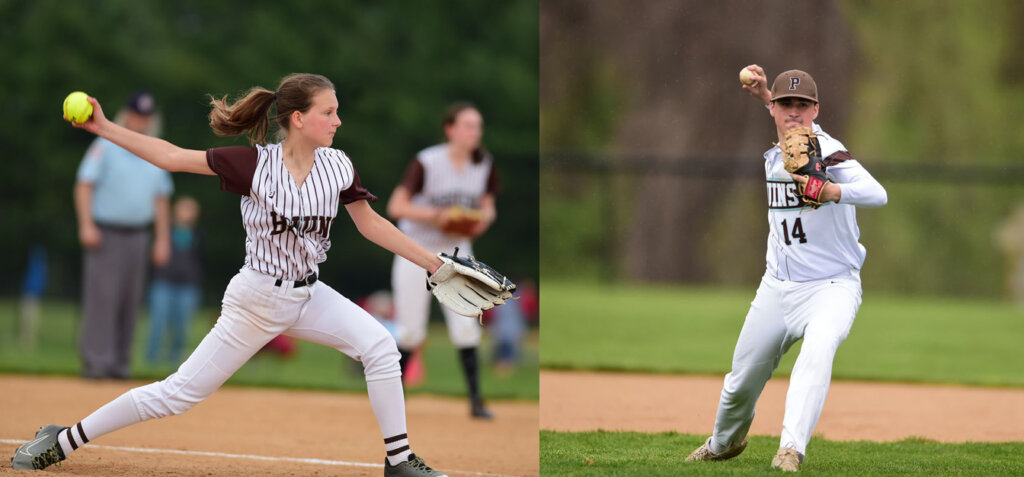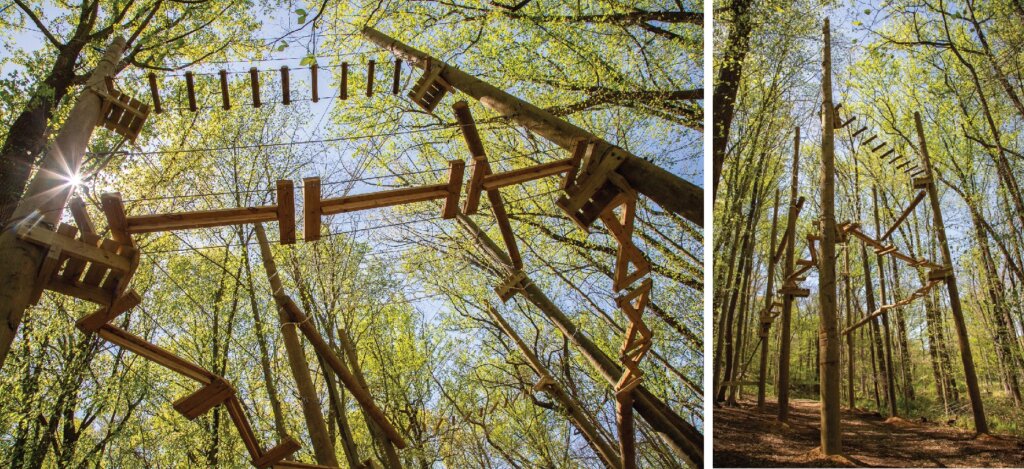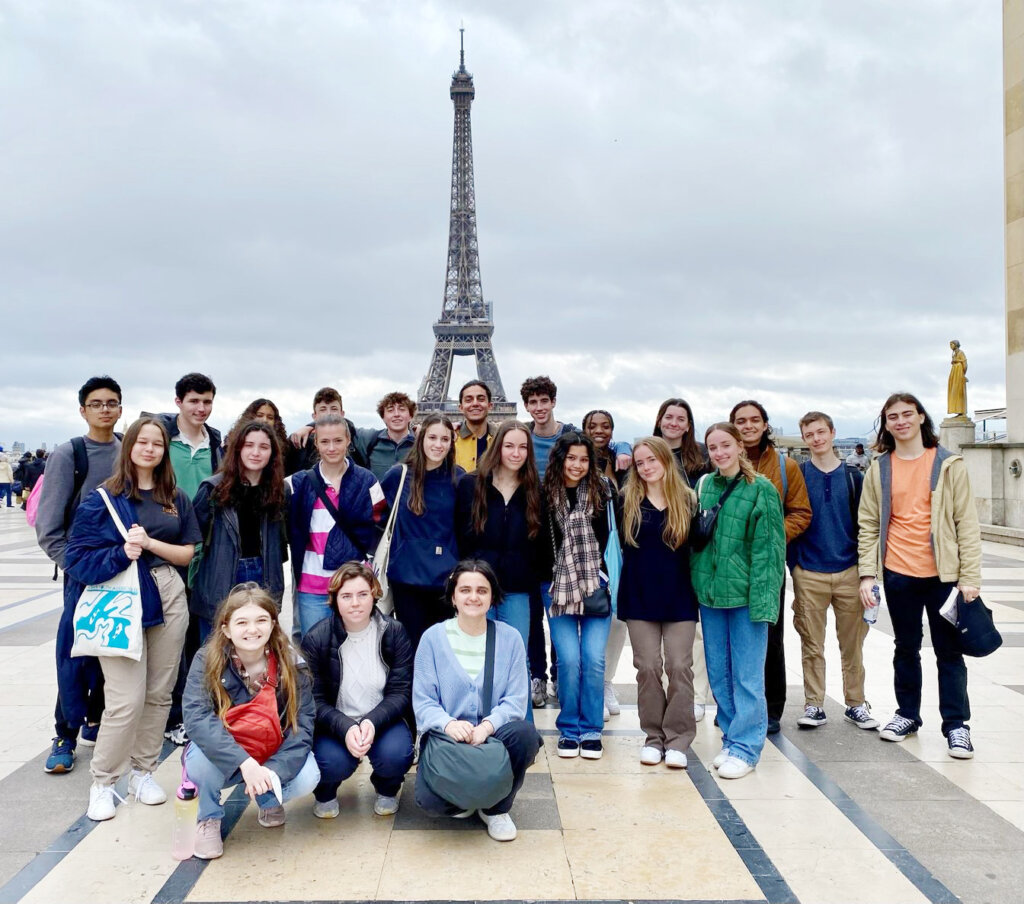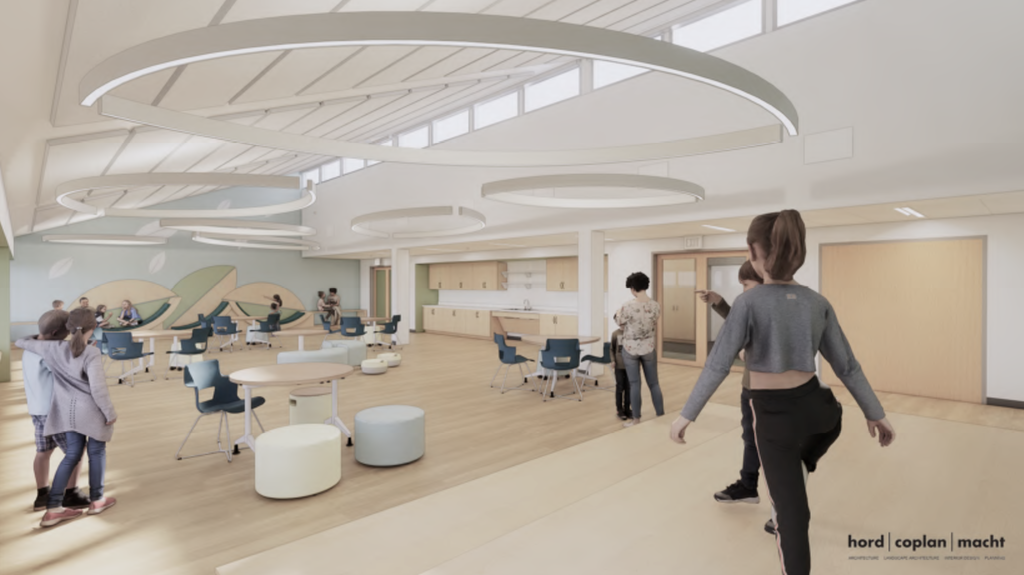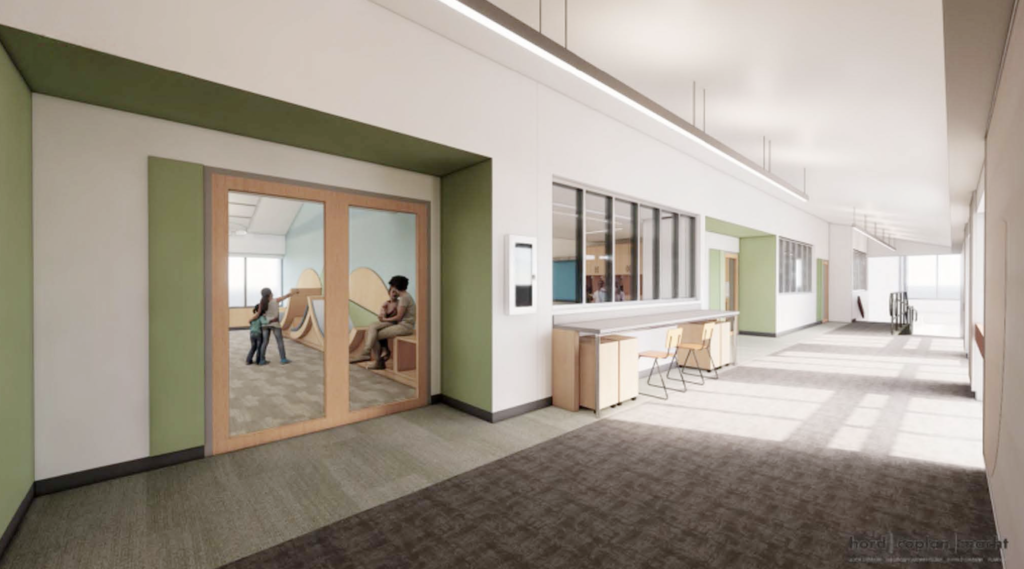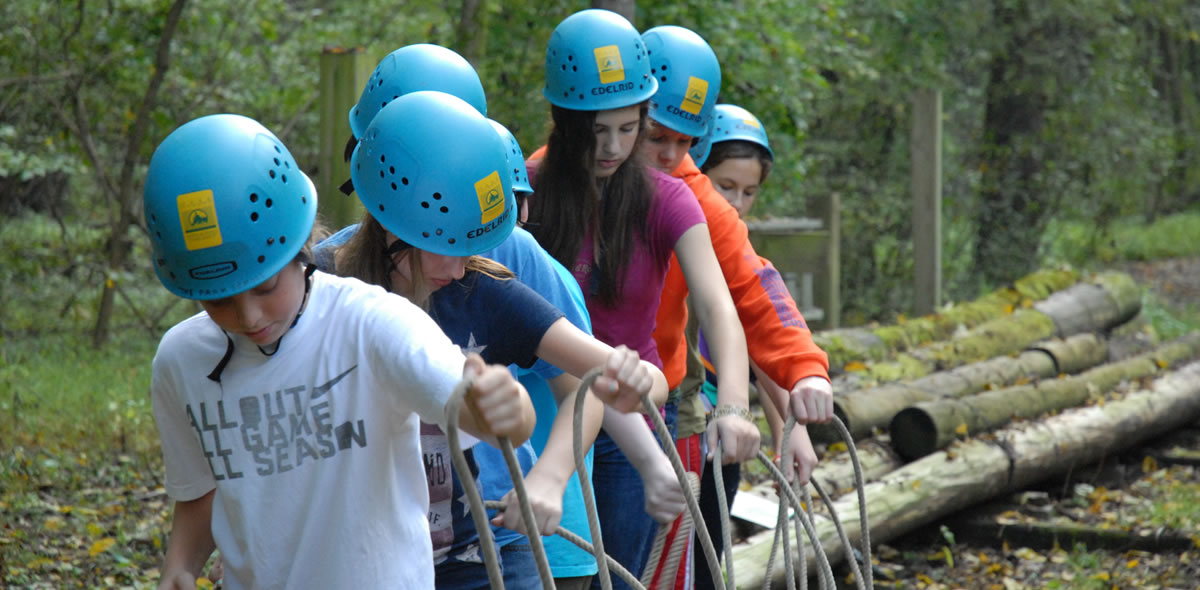Arts: Performing Arts
The Performing Arts program promotes a balance between process and performance.
There is an emphasis on student creativity, but all courses, whether production or process oriented, are designed to include careful attention to technique. The curriculum offers courses in acting, singing, recording, directing, set building, and performing. Opportunities for music performance include choral and instrumental ensembles. Productions typically include a musical on the main stage and a variety of theatrical pieces in the black box theater.
Requirements
- Students are required to complete four semesters in the arts, although most take more. Ninth graders select one arts course each semester from foundation electives in music, theater, and the visual arts. They may also join instrumental and choral ensembles, participate in theater productions in winter and spring, and take advanced classes.
- Upperclassmen must complete their arts requirements prior to the second semester of their senior year. Independent studies are limited and are only available to students who have fulfilled their arts requirement and wish to pursue advanced level work in an area of special expertise
- All students should read course descriptions carefully to determine eligibility. Accelerated courses are so designated. Please note that certain elective courses require a materials fee.
Eightnotes
Grades: 10-12
Eightnotes, Park’s soprano and alto a cappella group, sing, beatbox, and arrange a contemporary mix of pop music and standards. Rehearsals are twice a week during the school day, with additional rehearsals before major commitments and performances. Eightnotes represents vocal music at Park in assemblies, bi-annual concerts, public, and community events. Students are expected to strengthen their skills as singers and performers, and work towards developing their abilities to arrange songs of their choice.This course may be repeated with permission of the director. Pre-or co-requisites: An audition and a foundation music class. All Eightnotes must be members of Parksingers, Park Strings, or Wind Ensemble, and complete a foundation music class within their first Eightnote year. Year-long participation earns one art credit.
Parksingers
Grades: 9-12
Parksingers, a co-ed, non-auditioned, joyful, and versatile chorus, learns and performs a variety of traditional and contemporary choral music. The group rehearses two or three times a week and performs in assemblies for each division, evening concerts at Park, and community and sporting events. Students are encouraged to complete one music elective during their first three semesters in Parksingers. Year-long participation earns one art credit.
Park Jazz Collective
Grades: 9-12
Park’s Jazz Collective (PJC) is open to instrumentalists who are familiar with chord symbols and progressions and interested in learning jazz styles and ensemble playing. PJC musicians work towards gaining and improving their improvisation skills and learning the language of jazz theory. Selections are from the jazz canon, world music, fusion, traditional, and contemporary styles. PJC represents jazz at Park in assemblies, bi-annual concerts, and public and community events including International Jazz Day. The group meets twice a week after school, with additional rehearsals as necessary before larger performances or commitments. Pre- or co-requisites: An audition, a foundation music class, ongoing instrumental lessons, and permission of the department. New members of the ensemble must take a foundation music class within their first PJC year. Year-long participation earns one art credit.
Park Strings
Grades: 9-12
Park Strings explores a variety of classic and contemporary string orchestra and chamber music repertoire. Students expand their interpretive and technical skills, learn alternative styles, and develop ensemble skills through coaching and rehearsals three times a week. The group performs two concerts a year, as well as at numerous assemblies and the Goldsoundz concert series. Pre- or co-requisite: A foundation music class, instrumental lessons, and permission of the department. New students must complete their foundation music class within the first year of Park Strings. Year-long participation earns one art credit.
Vocal Chords
Grade: 9-12
The Vocal Chords, Park’s auditioned Tenor and Bass a cappella vocal ensemble, sing a variety of styles from barbershop to pop music and standards. Vocal Chords enter the group with different levels of musical and vocal experience, but leave with a strong voice, a good ear, and an abiding love of song. Strong music reading skills are helpful. The group rehearses twice a week, with additional practice times set up before major commitments and performances. Vocal Chords strengthen their skills as singers and performers, and work towards developing their abilities to arrange songs of their choice. Pre- or co-requisites: A foundation music class and an audition. All Vocal Chords must be members of Parksingers and complete a foundation music class within their first Vocal Chord year. Year-long participation earns one art credit.
Wind Ensemble
Grades: 9-12
Wind Ensemble is comprised of all brass, woodwinds, percussion, string bass, and electric bass. The group plays a variety of styles from “classical” to contemporary. As instrumentalists, the class focuses on ensemble skills, technical skills, rhythmic accuracy, intonation, style, tone, blend, and some music theory. The group performs at least two major concerts a year. Pre- or co-requisite: A foundation music class, instrumental lessons, and permission of the department. New students need to complete their foundation music class within the first year of Wind Ensemble. Year-long participation earns one art credit.
Acting
Grades: 9-12
Have you ever seen a play or movie and thought, “Hey, I could do that”? Well, now you can. This introductory-level course demystifies the acting process, focuses on basic acting techniques. Students learn the fundamentals of playing truthfully within imaginary circumstances, to develop characters, create circumstances, analyze scenes for actions, play off of their partners, and personalize work by tapping into their own lives. They present a series of scenes during the course and choose the best work to show on Scene Night at the end of the semester
Advanced Acting
Grades: 9-12
Interested in doing intense acting work? Hone your craft in Advanced Acting through high level technique work. During the first half of the course we will focus on the techniques of Sanford Meisner and the technique known as Practical Aesthetics — living truthfully within imaginary circumstances and playing truthfully in-the-moment. The second half of the course we will focus on applying these techniques in scenes, film work, and audition pieces. If you have taken Acting 1 or Improvisation and want to dig deep, this course is for you. Prerequisite: Permission of the instructor. This class is offered in alternate years and will be offered during the 2021-2022 academic year.
Beatz: Electronic Production
Grades: 9-12
Students learn to produce Hip Hop beats, soundtracks, dance, or other electronic music using a variety of software, including Ableton Live and Logic. The class focuses on MIDI and controller programming, drum machine sequencing, sampling, loop creation, synthesizer and production tricks, vocal processing, and basic musical harmony and form in the keyboard lab and the recording studio.
Directing
Grades: 11-12
In this course students will learn how to analyze a play; how, through analysis, to create a concept and a design for their play; how to audition, cast, and set rehearsal schedules; and how to employ the basic tools of directing: composition, picturization, and movement. Students will apply the techniques explored in this course by directing a short play for an audience at the end of the semester. Students must have taken Directing in order to submit a proposal to direct a play in the Winter Production of student directed plays. Prerequisite: Permission of the instructor. This class is offered in alternate years and will not be offered this year.
Fall Production: Working
Grades: 10-12
This course is devoted to producing a musical. Students will read, analyze, and rehearse a musical to be performed in late November. Actors will develop their characters, circumstances, and actions for the production while learning the music and further expanding their vocal technique. By participating in the production process, students will learn the standard practices of theater, learn to work as an ensemble, and challenge themselves with the demands of performance. This course will have after school and Saturday rehearsals. Prerequisite: An audition and an entry-level class in acting or music. This course may be repeated with permission of the instructor.
Guitar and Ukulele
Grades: 9-12
In this course, students will discover their inner Hendrix by learning to play classic pop, rock, soul, and jazz guitar and ukulele. They will learn and apply basic theory concepts to these instruments and develop their own strumming patterns and lead parts. No previous music experience is necessary to start or improve knowledge of strumming, picking, and wailing on guitar, ukulele, mandolin, bass, and banjo. This course meets the foundational music elective requirement for Eightnotes, Vocal Chords, Park Jazz Collective, Park Strings, Wind Ensemble, or Music Theory.
Modern Music BandGrades: 9-12
In this class students will play and record modern (pop/rock/R&B) music. They will learn many aspects of what goes into creating great song arrangements and putting on an awesome show. Learning arrangements of songs suggested by the class, students will also have the opportunity to bring in original material to workshop with the group. They will also analyze the styles of different bands from the past and present to find out what elements make their songs work so well. Students will choose a main instrument to focus on and will also spend time working on their theoretical knowledge of their music through analysis and critique. A performance is planned for the end of the semester, and there is the possibility of tracking original music in the recording studio. This class is open to anyone interested in developing their musical skills and knowledge — instruments include piano, guitar, bass, drums, vocals, sax, trumpet, trombone, clarinet, flute, violin, viola, and cello.
Music Technology
Grades: 9-12
This course is for students interested in learning to write music using software in the keyboard lab and the recording studio. In the lab, students compose, analyze, and perform pop, blues, concert, and world music, while studying harmony, form, and how to write a catchy melody. Projects include introductions to synthesizers and sequencing, basic orchestration/arranging, and scoring to picture.
Music Theory and Composers’ Workshop 1 (Accelerated)
Grades: 10-12
This accelerated course is for students interested in and passionate about theory, composition, and making music. Students will strengthen their abilities to recognize, utilize, analyze, and evaluate the elements and processes of music presented in a score. Emphasis is placed on students’ creativity with composition, and making connections with Western and world music influences. Compositions will be realized, supported, and shared by fellow musicians. Interested students need a significant background in music, solid understandings in ear training and music theory, and access to a pitched instrument. Students who enroll in both semesters of this class will be prepared for the material in the Advanced Placement Music Theory test.
Music Theory and Composers’ Workshop 1 is an in-depth look at musical relationships of keys, scales, forms and harmonies. Focuses include harmonic analysis including secondary dominants and modulations, and part-writing. This class is offered in alternate years and will be offered this year. Prerequisites: Permission of department and a foundational music class.
Stagecraft
Grades: 9-12
This class is dedicated to the construction of sets for the Upper School productions. In the first semester we will be engaged in building scenery for the fall musical and then helping with the 8th Grade production. In the spring we will begin with the 8th Grade production and then support the next three shows in the Macks-Fidler Theater. Working backstage involves reading plans, building, and painting scenery, as well as hanging and focusing lighting fixtures based on a lighting plot. Students taking this class may work backstage during the show if they wish to do so.
Acting
Grades: 9-12
Have you ever seen a play or movie and thought, “Hey, I could do that”? Well, now you can. This introductory-level course demystifies the acting process, focuses on basic acting techniques. Students learn the fundamentals of playing truthfully within imaginary circumstances, to develop characters, create circumstances, analyze scenes for actions, play off of their partners, and personalize work by tapping into their own lives. They present a series of scenes during the course and choose the best work to show on Scene Night at the end of the semester.
Guitar and Ukulele
Grades: 10-12
In this course, students will discover their inner Hendrix by learning to play classic pop, rock, soul, and jazz guitar and ukulele. They will learn and apply basic theory concepts to these instruments and develop their own strumming patterns and lead parts. No previous music experience is necessary to start or improve knowledge of strumming, picking, and wailing on guitar, ukulele, mandolin, bass, and banjo.
Home Studio Production
Grades: 9-12
Professional level music and multimedia production has never been easier to accomplish at home. This course will focus on music production, audio engineering, and content creation specifically for a laptop. Students will record, compose, arrange, mix, and master band sessions and original compositions, learn the basics of producing commercials and short videos, live streaming and virtual event production, and content creation for YouTube and other digital platforms.
Improvisation for the Theater
Grades: 9-12
Where does creativity really come from? How do you release your own creative juices? This course will explore improvisation both onstage and in life. Students will train their ability to connect to each other and respond to each other in the moment, without “thinking.” A series of improvised situations and scenes will lead students to better understand how to get out of their own way and free their creative spirits. Students will improvise around objects, activities, places, and people, and do comic improvisations as well as dramatic improvisations.
Movement Matters: Mapping the Body in Motion
Grades: 9-12
How can movement connect us to ourselves, to each other, and to our environment? Can developing movement practices, including mindfulness, improvisation, and different approaches to dance, support us as we “map,” share, and express our identities and stories? How can cultivating body-based connections to ourselves and moving intentionally in relationship to others and the space lead us toward the generation of material for original performance? Open to all skill levels, and working primarily in the dance studio, this course will explore a variety of movement forms, from dance, to somatic relaxation and awareness practices, to ensemble-building improvisational structures and exercises. Students will use movement as a tool to connect more deeply to themselves and their stories, each other, and the world. A range of musical styles, from contemporary music to more experimental approaches to sound, will accompany and inform students’ movement. Specifically, they will consider how music and sound “move” them as they explore their relationship to expressive movement, and will be invited to experiment with contemporary music and other musical forms and styles.
Music in Film
Grades: 10-12
Why is the theme from “Jaws” so memorable? Was the music in “The Joker” worthy of the 2020 best film score? Are there any horror movies without music? Music in Film introduces and traces the history and development of film music through film viewing, discussion, listening, composing, and reading. The class learns and attempts the process of film scoring and how music and its relationship to film has changed over the last century. Terms and understandings for filming and directing, scoring, critical viewing, and listening are highlighted. This is where you, students, can share the soundtrack to your life! Open to all who like movies and music and music in movies.
Music Theory and Composers’ Workshop 2 (Accelerated)
Grades: 10-12
This accelerated course is for music students with strong theory and composition understandings, and those continuing studies from Music Theory and Composers’ Workshop 1 (Accelerated). This course emphasizes students’ creativity with composition, including connections with harmony studies, counterpoint, Western, and world music influences. Interested students need solid advanced comprehension in ear training and music theory, committed music interests and experience, and access to a pitched instrument. This course emphasizes students’ creativity with composition, including connections with chord progressions, counterpoint, modern and world music influences.
Music Theory and Composers’ Workshop 2 is an in-depth look at musical relationships of keys, scales, forms, and harmonies. Focuses include harmonic analysis, including secondary dominants and modulations, and part-writing. Prerequisites: Music Theory and Composers’ Workshop I or permission of the department and a foundation music class. This class is offered in alternate years and will be offered this year.
Ninth/Tenth-Grade Production
Grades: 9-10
In this course, 9th and 10th Graders will read, analyze, and rehearse a play. Careful analysis of the play will provide a foundation for students to develop their characters, circumstances, and actions for the production. Students will explore the world of the play, its cultural contexts, and its particular theatrical style and, by doing so, will expand their own aesthetic awareness. By participating in the production process, students will learn the standard practices of theater, learn to work as an ensemble, and challenge themselves with the demands of performance. This course will have after-school rehearsals. The production will be in mid-May. Prerequisites: An entry-level acting class and an audition.
Rhythm Section Workshop
Grades: 9-12
This class will include listening to, analyzing, and practicing music on guitar, bass, keyboards, percussion and drums; but it is open to all instrumentalists and vocalists. Emphasis will be on familiarizing students with rhythmic cells in various time signatures and strengthening reading/rhythmic feel. Some examples of music we will cover: Afro-Caribbean dance music, West African drumming, Brazilian Samba/Bossa Nova, Jazz, Rock, and examples from modern music. Students will also be able to compose and improvise with rhythmic and melodic ideas in group playing activities on various instruments.
Spring Production: A Midsummer Night’s Dream
Grades: 10-12
This course will be devoted to the production of a play by William Shakespeare as a main stage production in the Macks-Fidler Blackbox Theater. Students will read, analyze, and rehearse the play. Careful analysis will provide a foundation for students to develop their characters, circumstances, and actions for the production. Students will explore the world of the play and its cultural contexts, expanding their aesthetic awareness of Elizabethan theater. By participating in the production process, students learn the standard practices of theater, learn to work as an ensemble, and challenge themselves with the demands of performing a full-length play. This course is linked with the English course, “Shakespeare: Page to Stage,” which will analyze the play and meets in the same block during the fall semester. It is highly recommended, but not required, that students cast in the production also take the English course. Leads, however, will be required to take the English course and will not be able to participate in other daily after school activities in the spring. Though Spring Production is by audition, students do not need previous experience. Prerequisite: Audition. After school rehearsals are a part of this course.
